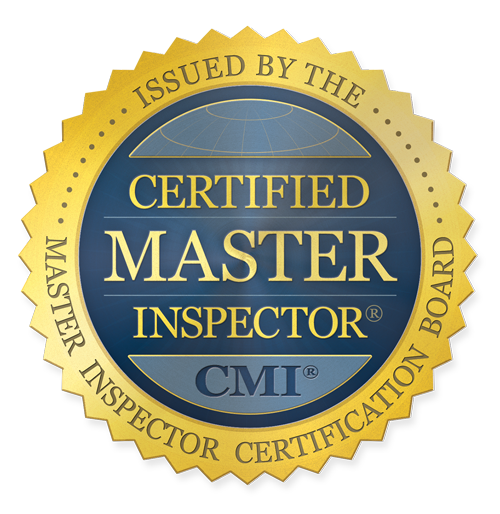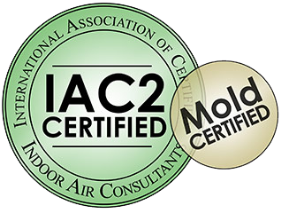Here are the basics on how the various home inspections work and how to choose the one that’s right for you!
1. Whole-Home Inspections
The most thorough-going of home inspections is what’s referred to as a “whole home inspection.” Unsurprisingly, this is a comprehensive examination and assessment of virtually every conceivable aspect of your home’s current condition.
This incorporates a 4 point inspection but goes well beyond it as well. (We will look at what’s included in a 4 point inspection just below.) For now, just realize that a whole home inspection adds significantly to the 4 points. Everything from the foundation to the rooftop will be examined and accounted for on the extensive checklist.
The evaluation will include recommendations on how you could make improvements that would bolster the safety level, value, and longevity of the property inspected.
You can (and should, if at all possible) accompany the inspector during the inspection process. You are permitted to do so even if ordering the inspection for a home you are interested in buying and have put down earnest money on. You could also have a friend or family member tour the home along with the inspector if you can’t be there.
If a building has never been inspected before, or not for decades, or if you insist on knowing every possible detail about all aspects of a property’s condition, then you would want to order a whole-home inspection done by a professional, reputable home inspection provider.
2. The 4 Point Inspection
The most commonly ordered type of home inspection is called the 4 point inspection. This is also a rather thorough inspection, but it focuses primarily on the four major systems of the house:
- The roofing system.
- Electrical system.
- The Plumbing.
- HVAC
The age of the roof and the roofing material used will be determined, along with the condition of the roofing. The strength of the attachment of the roofing to the roof deck, of the roof deck to the roof structure and the roof structure to the main building structure will all be examined. If there are roof braces that strengthen the roof-building connection, this is a big help in Florida where there are many hurricanes and strong storms.
The biggest issue with the electrical system is, of course, making sure there is no fire hazard to worry about. The age and type of wiring, its condition, and its routing will be important here. Electric meters and control panels will be looked over, and the inspector will ensure the building is up to code – for the year it was built.
Plumbing is the third component of a 4 point inspection. Piping, fixtures, septic or sewer connection, backflow guards, and other points will be noted. If there are any slow leaks or rusted pipe connections, you will be notified so that they can be fixed.
HVAC includes heating, ventilation, and air conditioning. This is crucial not only for energy efficiency but also for maintaining healthy air to breathe inside the building. Also, good ventilation reduces the risk of mold or mildew and can extend the life of a building. Central air systems, furnaces, ductwork, and more will be thoroughly assessed in a 4 point inspection.
A 4 point inspection is especially recommended for older homes, but it is often required by home insurers and mortgage lenders regardless of the building’s age. You will need a company that is fully licensed and insured and that offers quick turnaround so that the inspection will accomplish all it needs to while not at all delaying the home purchase process.
3. Infrared Inspections
Today, you can get a whole home or 4 point inspection done at a whole new level with an “infrared inspection.” Infrared inspections can reveal problems not otherwise visible without tearing the building up or using invasive methods.
An “IR” inspection may reveal, for example, damaged insulation in the ceiling or a ventilation blockage. It may show issues inside the walls or below the floorboards.
While use of infrared technology isn’t strictly required for home inspections, it is a big help. If you are leary about the true condition of an older home, consider upgrading to infrared so you won’t be surprised later on by issues that non-infrared inspections cannot detect.
4. WDO Inspections
WDOs, or wood-destroying organisms, can be a major threat to the long-term integrity of homes. A WDO inspection will seek to verify whether or not subterranean and/or drywood termites are a problem. It will also look for evidence of any past infestations.
Inspectors will look for termite feces, wood that may have been damaged by termites, and infestations in the ground around the home’s perimeter. They will also be keen to look for signs of wood-eating beetles and other pests that are known to destroy wooden buildings in Florida.
If structural damage has already been done, repairs will be recommended in the report. If a current infestation or threat exists, the inspector will coordinate with a pest control company to help you take care of the problem as quickly as possible.
5. Wind Mitigation Inspections
In Florida, state law requires home insurance companies to offer discounts to homeowners who have positive wind mitigation features on their home.
Features like a strong roof and good roofing, protections for openings (windows and doors), and hurricane braces – for example, can earn you wind mitigation “points” that lead to home insurance premium discounts.
If you live on a hilltop or along the coast, your home may suffer from higher than normal wind exposure. If this is the case, it makes a lot of sense to order a wind mitigation inspection for safety’s sake as well as to help save a little cash each month.
Which type of inspection you choose will depend on the building, its age, and your purpose in getting it inspected. A 4 point inspection is standard, while a whole home inspection goes the extra mile. In some cases, ordering an infrared, WDO, or wind mitigation inspection may also be a wise move.
To learn more about how each type of home inspection works and which one may be right for you, contact Super Inspection Pros in Central Florida today. We have many years of experience in performing all types of home inspections for Florida homeowners or for prospective homeowners. We are here to help!

